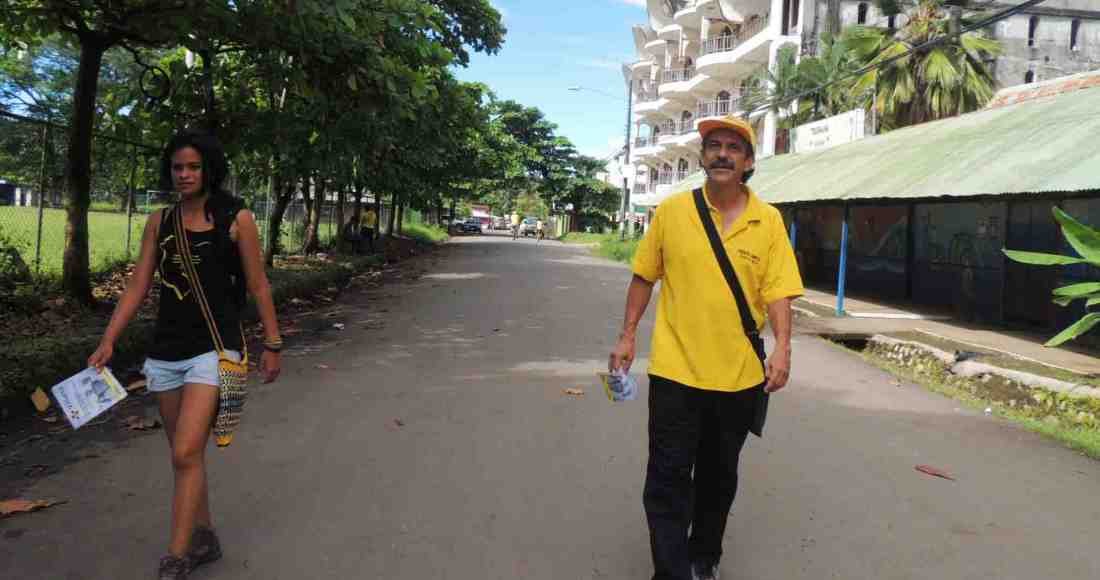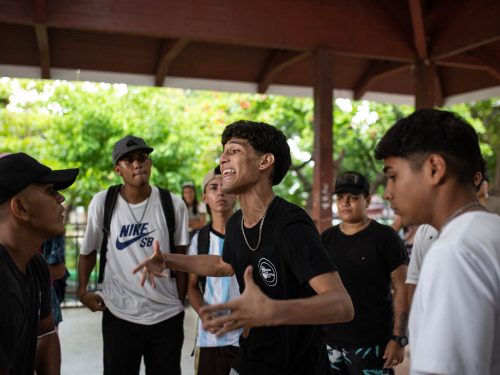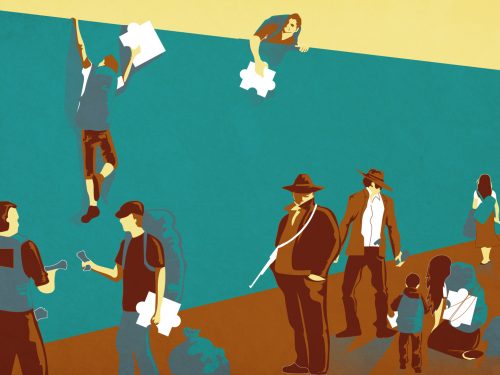
As the national elections approach, the political environment isn’t heating up among Guanacaste’s youth, according to an opinion poll conducted by The Voice with young adults between 18 and 25 years old.
Of a total of 30 people interviewed in Nicoya, Nosara, Samara and Santa Cruz, 70% said they were not interested in politics. They justify their disinterest with two fundamental reasons: 45% said that their dissatisfaction is due to corruption, 40% to deception when politicians fail to fulfill their promises and 8% to the lack of commitment to the people.
While most agree that politics is necessary for the country, they displayed ignorance regarding their own representatives: 85% indicated that they do not know who the current legislators for Guanacaste are and 92% say they don’t know the candidates for 2014.
Aramis Vidaurre, a political scientist at the National University of Costa Rica, puts the situation into perspective: “We are facing a more reluctant, suspicious and picky society. Today people have information at their fingertip and therefore there is a greater capacity for analysis. Now few people remain who cling to the color of a flag; today the demands are greater, but this is normal (because) every system reaches its peak and then starts its decline,” he explained.
To Vidaurre, citizens have an electoral responsibility and should know the candidates and be more demanding. “Citizen support is needed in a democratic system… Citizens have a great power of decision,” he affirmed. According to data from the Instituto de Formación de Estudios en Democracia (Institute of Formation of Democracy Studies) of the Tribunal Supremo de Elecciones (Electoral Supreme Court), the young population abstains most from voting. Hugo Picado, representative of the entity, said that according to a study of the last election, the profile of voters in Costa Rica is between 40 and 70 years of age and the provinces with the highest incidence of absenteeism are Puntarenas (40%), Limon (38%) and Guanacaste (36%).
Wendy Vanessa Mora Sánchez, youth coordinator for the Frente Amplio (Ample Front) party, explained that to get youth involved in the electoral processes, it is necessary to listen to them so they can externalize their thoughts and motivations. “We are creating a space for young people to have a voice and a vote. We, more than anyone, know the problems we face in Guanacaste and the vulnerable position we have… It’s not that they (young people) are not interested in politics; what happens is that they aren’t listened to,” she added.
For her part, Yolanda Alpizar, legislative candidate for the Movimiento Libertario (Libertarian Movement) party, commented, “I think our party has fallen short in terms of youth following because we have focused more on university students, while we’ve left out those young people who did not even finish high school and who are the majority. They are precisely the ones who have no access to work; therefore, it’s necessary to conduct research to know their needs and interests and thereby get them interested in the political process,” she assured.
According to the survey, the subjects that most concern young adults in Guanacaste are unemployment (35%), education (25%), fixing roadways (25%) and poverty (7%).







Comments